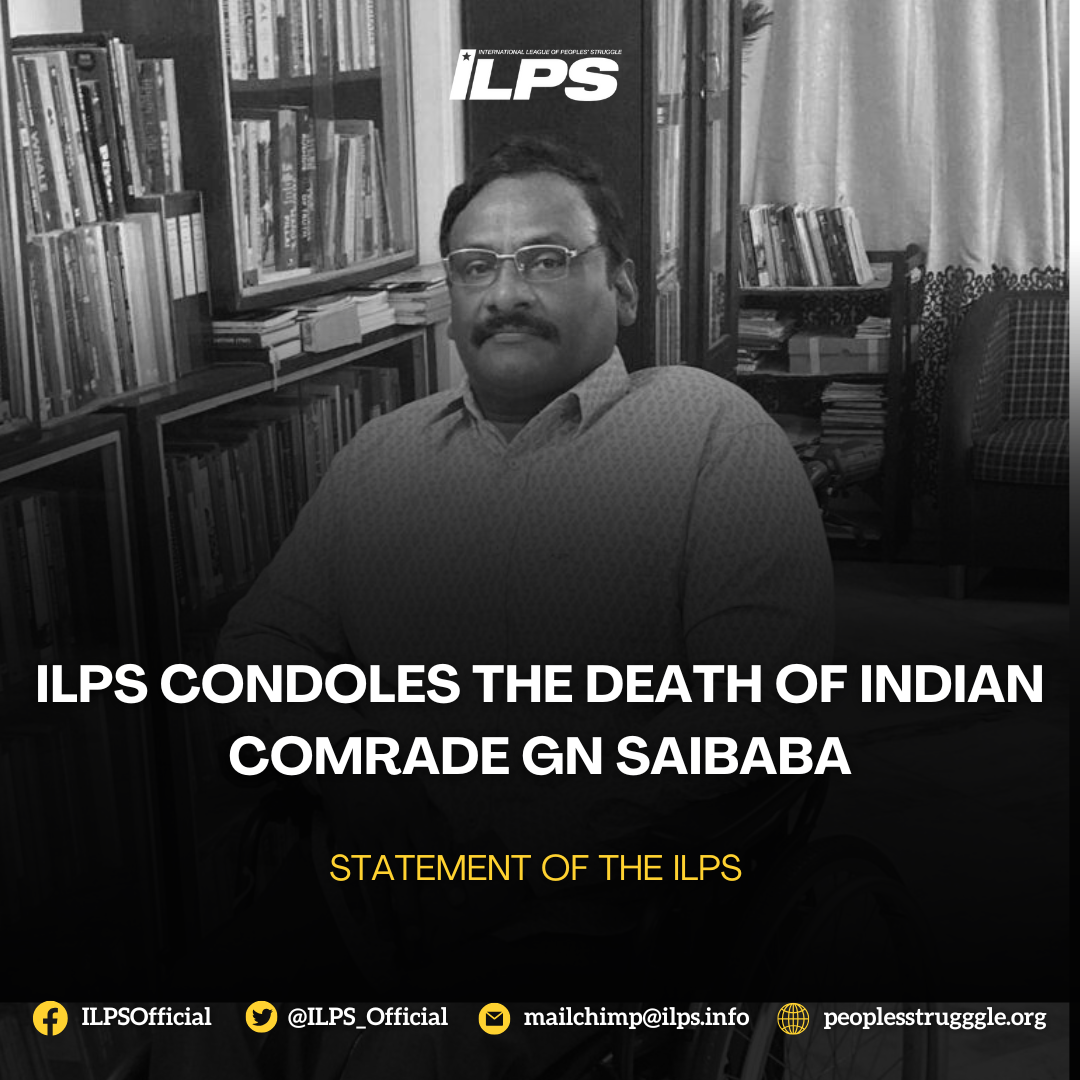
US’ intensified pivot a threat to the people of Asia Pacific, hastens the possibility of outright war says peace advocates
Peace advocates from Japan, Australia, India, South Korea, and the Philippines gather to manifest their unity to oppose all kinds of imperialist aggression in the region. In a global press conference held in Manila, groups from the Asia Pacific are calling for just peace as they sound the alarm on the intensifying tensions between China and the US superpowers.
“Today, we mark the unity of vulnerable sectors and citizens of Asia Pacific against imperialist wars. We are condemning the US for its intensifying warmongering in the region. The US’ geopolitical and economic rivalry against China is hurting the people and both their aggression will not remain unopposed,” says Liza Maza of the International League of Peoples Struggles (ILPS), one of the main organizers of the event.
Representatives from the youth, religious groups, indigenous and Moro people, peasant, LGBTQI community, and humanitarian organizations together with peace activists, environmental defenders, and think tanks join the anti-war press conference. The panelists from different countries and sectors discussed the consequences of growing tensions between superpowers.
Oil and war
The rising prices of oil and basic commodities have been highlighted as a ripple effect of the conflict in Ukraine and the West’s sanctions against Russia. “It is important that we see how unregulated oil giants are exploiting the crisis in Ukraine. The US, Saudi, and other oil monopolies that supply oil to many Asian countries are taking advantage of this war crisis to raise the prices,” says Maza.
The price of Brent crude, the global benchmark, shot up past $124 a barrel earlier this month. This came after the European Union announced that it would slash 90% of its Russian oil imports even though the sanctions will be gradually happening throughout the year.
Beyond oil price speculation during conflicts, the speakers in the media event stressed issues of human rights, together with the environmental and human cost of war.
“The possibility of an all-out war is upon us with these superpowers having enough nuclear weapons to destroy one another and the world,” says Asia Pacific Research Network (APRN) General Secretary Alex Enano in the hybrid press conference.
According to the research group, the US had been more aggressive in brokering military alliances and consolidating its influence in Asia. US president Joe Biden’s flurry of Asia-focused diplomatic efforts includes his first Asia Pacific visit, US-ASEAN summit, the US-India 2+2 Ministerial Dialogue, Summit for Democracy, and Quad leaders assembly.
This is on top of the newly launched military tri-alliance AUKUS initiated by the US which intends to develop a wide array of arms technologies along with the controversial acquisition of Australia of nuclear-powered submarines.
“In effect, this has officially transitioned Australia from being a military launchpad to an active major actor in the geopolitical disputes of the region,” says AIDWatch board member and former Australian Senator Lee Rhiannon who is actively campaigning against AUKUS and also present in the event.
Growing anti-war movement
Enano remarked on how the dominant depiction of wars fails to capture the roots of these conflicts. “We are in a time where the competing interests of imperialist countries are intensifying. However, there is a growing people’s resistance and anti-war movements that dare to oppose these aggressions,” the APRN General Secretary adds.
Maza stressed that these anti-imperialist war movements, despite being left out in the narratives, are here and growing. “Even in the imperialist’s satellites such as Japan and Republic of Korea, there are movements steadfast in opposing the bases, military exercises and policies that threaten people’s rights,” Maza says.
Through teleconferencing, Yoshio Nakamura of the Asia Wide Campaign Against the US- Japanese domination and aggression of Asia (AWC) along with Korean Church leader Rev. Jang Chang Weon joined the event and manifested their solidarity.
The global press conference is also an invitation to other people’s organizations, peace-loving peoples, and CSOs to resist imperialist wars and all forms of foreign aggression.
“It is clear that US-China rivalry is hurting the people. We don’t want another war born out of their geopolitical interests,” says Maza. According to the organizers of the gathering, this declaration of unity is the start of a series of activities and solidarity amongst the people of Asia Pacific.
While tolling bells to signify their demands for just peace, the different groups shouted calls of solidarity and freedom from war. “More than ever, there is a need to strengthen movements against imperialist wars while building solidarity among peoples asserting their collective democratic rights, self-determination, and social and national liberation,” Maza concludes.#



